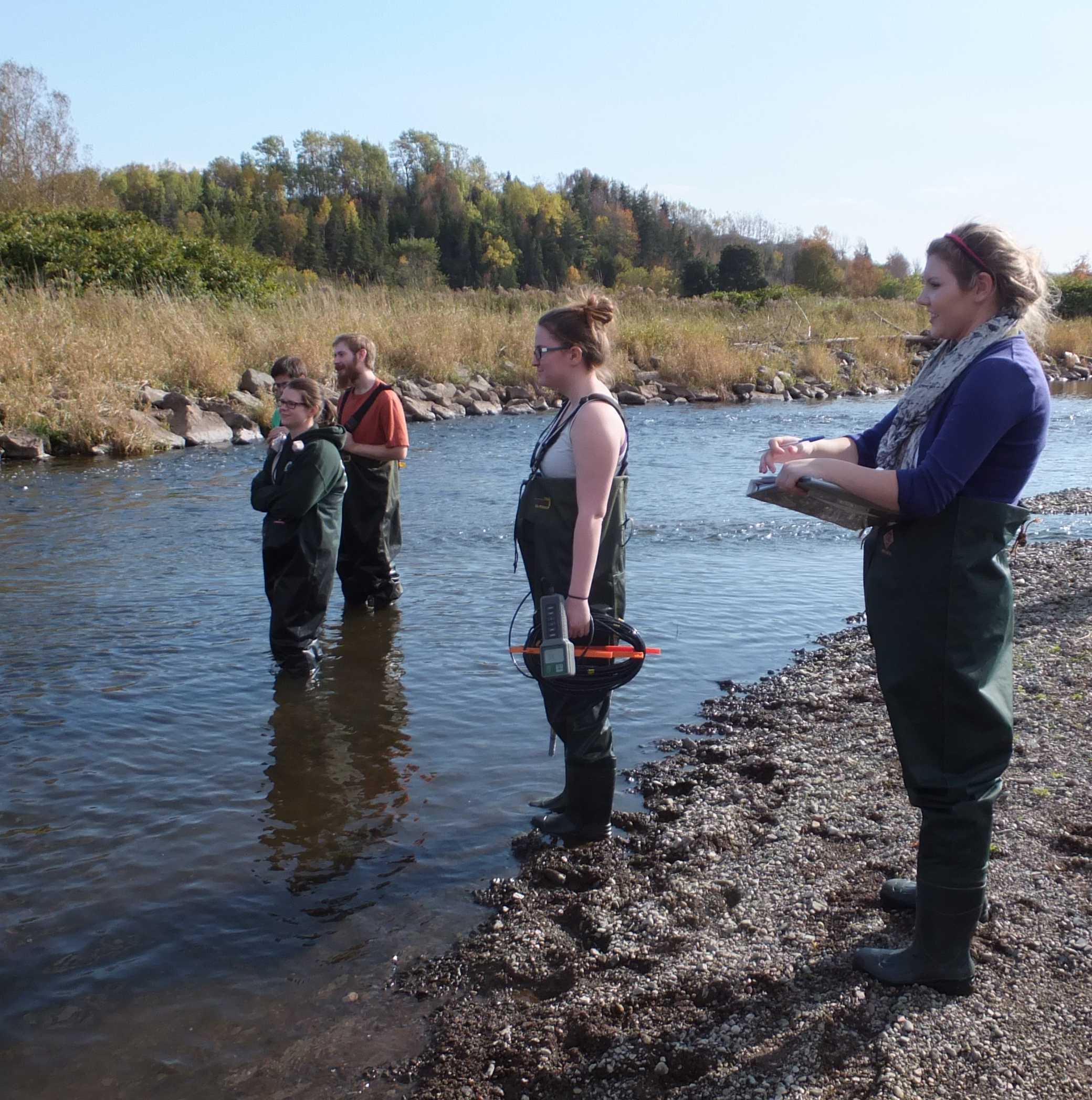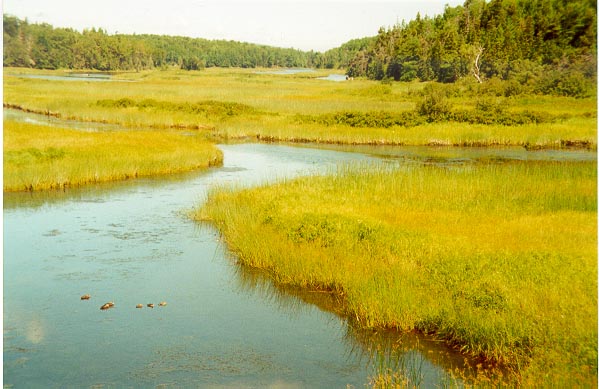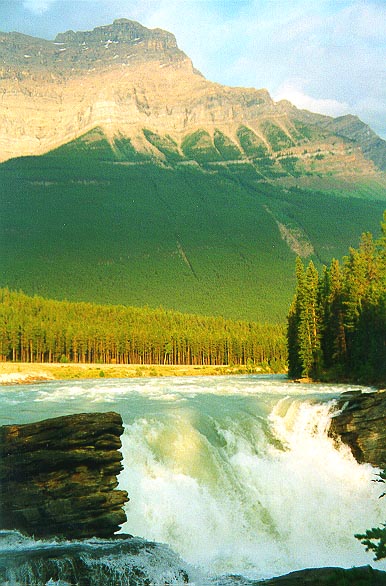|
|
Barry R. Taylor Courses Left: Students in Freshwater Biology (BIOL 474) surveying water quality in Rights River, here in Antigonish. [This course is no longer offered] |
Courses | |
|
BIOLOGY 203: Introductory Ecology Biology 203 is the primary course in ecology for biology students at St. FX. The course surveys the fundamentals of ecology in an evolutionary context. We begin with theories of population growth, move on to interactions between species and their assembly into communities, and conclude with a look at whole ecosystems. Laboratories are held outdoors when the weather is reasonable, so students have the opportunity to do real ecological measurements in fields, forests and streams.
|
South River Estuary, Antigonish, NS (before construction of the new highway crossing) |
|
Athabasca Falls, Jasper National Park, Alberta |
BIOLOGY 345: Communities and Ecosystems This course provides a critical look at communities and
ecosystems as units of biological organization with definable attributes and
behaviour. We use examples drawn from freshwater, marine and terrestrial
ecosystems to see how production, decomposition and
element cycles are controlled by physical forces such as climate and hydrology.
We explore beguiling controversies surrounding diversity, succession, and food
chains. Finally we look at the global effects of humans on
ecosystems and the tricky business of ecosystem restoration. |
|
BIOLOGY 472: Freshwater Ecology This course takes a comparative approach to freshwater ecology: we examine lakes and ponds of all sizes and compare them against rivers and streams. We see how the physical properties of water are fundamental to life in both kinds of ecosystems; how downstream flow dominates the ecology of rivers as thermal stratification dominates lakes; and how aquatic life from bacteria, through algae, protozoa and plankton to fish are influenced not only by their aquatic environment, but by the larger drainage basin in which it lies. Many of the laboratory sessions are held outdoors, where students get to explore firsthand the variety of aquatic ecosystems in the Antigonish area. This course is no longer offered.
|
Biology 472 students exploring aquatic vegetation in Lake St. Joseph. |
|
Channel restoration in Brierly Brook using a digger log, a rock deflector (right) and bank armouring (left). Together, these structures prevent bank erosion and help the stream regain its natural pattern of pools and riffles. |
BIOLOGY 468: Restoration Ecology Ecological Restoration is the practice of repairing ecosystems that have been disturbed by human activity. Restoration Ecology is the science supporting that endeavour. This integrative course examines the application of ecological principles to restoration of both aquatic and terrestrial ecosystems. We learn the various ways that natural communities are degraded by humanity, then look at how careful restoration of physical habitat, natural flora and fauna, and ecological processes can help guide disturbed ecosystems back toward their original condition. Because it integrates information from a number of fields, this course provides a capstone for the ecology courses offered by the Biology Department. Laboratories in this course examine soil structure and eco-toxicology, then use a series of local case studies to examine how ecological principles can be applied to restoration of streams, lakes, mines, forests, rare species and contaminated land. |
Last modified: May 2022


